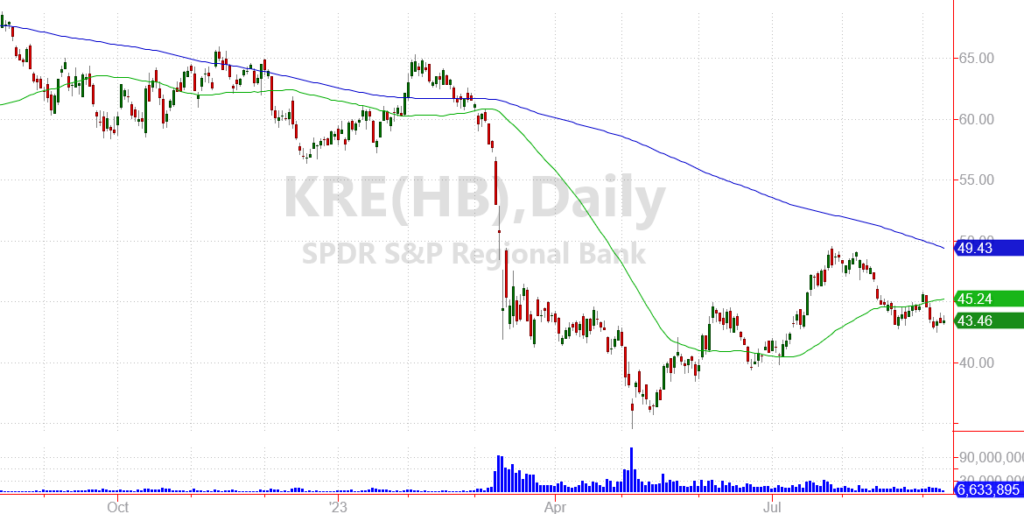The $250,000,000,000 Bank Debt Bomb

Image Source: Pexels
You might think the regional bank crisis is in the rearview mirror.
The failures of Silicon Valley Bank (SVB) and First Republic Bank (FRB) caused a major crisis of confidence for small and midsized banks across the country.
Declining bond and loan values caused bank asset portfolios to drop. So when customers began to withdraw deposits, these banks couldn’t come up with the necessary cash.
This risk sent regional bank stock prices spiraling until the FDIC and Federal Reserve stepped in to restore confidence.
By implicitly guaranteeing deposits, and creating new borrowing standards for banks, these new regulations helped to stem the fear both on Main Street and Wall Street.
But today, there’s a new $250 billion risk looming for regional banks. One that could cause a much bigger challenge for our financial system.
Let’s take a look at what’s happening and how you can profit in spite of the coming storm.
$250 Billion in Office Property Losses
Legendary investor Kyle Bass made headlines this week when he told Bloomberg that the U.S. banking industry will likely lose up to $250 billion on office property loans.
Office properties represent a major risk for a few important reasons.
First, vacancy rates are stubbornly high.
Although many companies are now requiring workers to come back to the office at least part-time, the number of employees commuting to work will possibly never fully recover to pre-pandemic level.
And many offices are adopting a flexible model where people can use any available workstation when they’re present. Policies like this allow companies to be more efficient with space, leading to fewer square feet needed.
A second problem is refinancing risk for property owners.
Many office buildings have been financed with bank loans that are will come due over the next few quarters. The loans worked well when interest rates were lower. But refinancing these loans at today’s interest rates is an entirely different matter.
Higher vacancy rates have left property owners with less revenue. And higher interest rates from new loans will pressure profit margins — if not erase profits altogether.
In some cases, property owners may simply hand back the keys to lending banks. Which raises a third issue…
Banks may wind up repossessing office buildings. And then face the issue of falling office building valuations.
Most banks don’t want to be in the business of owning properties and leasing office space out to tenants. So instead, the banks will sell the properties and attempt to recoup some of the value that was lent to property owners.
Except in today’s market, it will be very difficult and time-consuming to sell these properties. And regional banks may have to take fire sale prices just to get these real estate holdings off their books.
Avoid Regional Bank Stocks (For Now)
Take a look at the SPDR S&P Regional Bank ETF (KRE) below:
(Click on image to enlarge)

As you can see, bank stocks fell sharply earlier this year. From that point, bank stocks managed to stabilize but have not recouped the losses that hit in March of this year.
My concern is that these banks will continue to trade lower as investors start to handicap this new $250 billion debt issue.
Profiting From the Bank Debt Crisis
I’ve begun researching individual banks within this area to find some of the more vulnerable bank stocks. Many of these bank stocks could have a long way to fall.
Over the next few months, I expect to be buying put contracts on a handful of bank stocks. These contracts trade higher as stock prices drop. So the put contracts have the potential to generate large profits as bank risks materialize.
One thing to keep in mind is that stocks tend to fall much more quickly than they advance. That’s because when investors are greedy, they tend to accumulate shares over time. But when investors are fearful they sell out of positions all at once.
Buying put contracts during periods of fear can be extremely lucrative.
More By This Author:
Beware The Mega-Cap Smackdown
How To Play The Instacart IPO
It’s A Bull Market — So Sit On Your Hands



